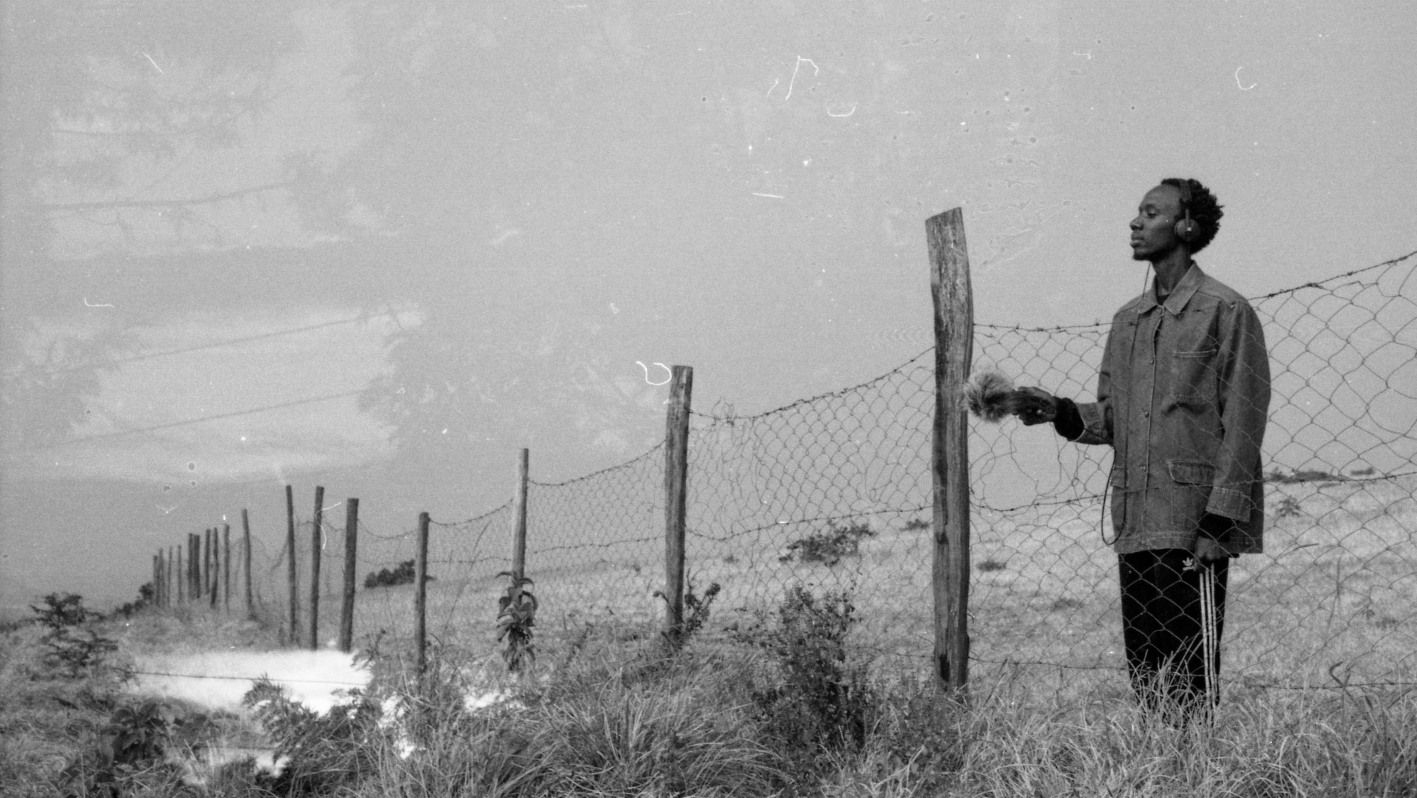Photo: Press (KMRU)
For someone whose musical output is mostly slow and quiet, KMRU is a pretty fast worker. Just last year, the now Berlin-based Kenyan producer released four records, among them the acclaimed Peel on Editions Mego and the album Jar for the German Seil imprint, while also uploading material on his Bandcamp page regularly and taking care of the musical archive of Joseph Kamaru, his grandfather, one of the most important benga musician in history. Having just released the compilation album Logue on Injazero, KMRU’s mix for our Groove podcast offers of a “transcendental experience,” according to the sound artist.
First off, how have you been doing this past year?
It’s been a ride, very emotive and adventurous in its own way. But more grateful to be healthy.
In an essay on the documentary SOA, you have noted that the soundscape of Berlin, where you have recently relocated to, is quite different from your home town’s, Nairobi. How would you characterise Berlin’s distinctive sound, and what would you say can listening to a city tell us about its people?
I moved to Berlin during a lockdown and just at the beginning of winter. The sonic change was quite distinct for me during the first few days of being here. It was more silent. The immediate acoustic environment I was connected to whilst in Nairobi was no longer close and I had to adjust quickly to the situation I was in sonically, which involved a lot of listening walks on my own every day. For Berlin, it varies with the location you are in, although the sirens here are so present, they can be very annoying in some cases but I understand the situation. Well, listening reveals different aspects of visible spaces and location; from human beings, sound objects, every kind of material, there’s always acoustic properties which can help us understand profoundly our polyphonic world.
Generally, you work a lot with field recordings in your music. What are you trying to capture when you are out in the field?
It’s more of an awareness to my surroundings, attending to the auditory and seeking a more dynamic listening practice. In the field, it varies. My excursions are very spontaneous and I am always curious to find what will inspire interest to record.
You’ve mentioned that especially collecting electromagnetic sounds has been somewhat revelatory for you. Why did you start focusing on those, and how did studying them change your “perception of everyday reality,” as you put it?
A lot was inspired being indoors in Nairobi for a very long duration. With the whole pandemic situation, I decided to explore more of the sounds inside and I had an electromagnetic microphone which I decided to explore more and it was very surprising. I just became more aware of the other layer of the unseen sounds, and I am still exploring how these sounds can affect different ecologies and environments.
You are nowadays primarily viewed as an ambient producer, however, have also put out a slew of beat-oriented releases. How would you describe your relationship with electronic dance music?
I’m quite open and always curious to explore different aspects of music styles in the electronic music discourse, an eclecticist approach is my way. I guess it all stems back to the music and artists who have inspired me, not necessarily “ambient” artists.
Your new album Logue is a compilation of sorts, comprising pieces that you have self-released throughout the past few years. How did you approach selecting the tracks for this release?
The selection was a mutual collaboration with the label. Some of the tracks were already alongside each other in form of EP’s and in context to the places where they were recorded.
Besides regularly releasing your own music through your Bandcamp page, you are also running an account that you use to make archival recordings of Joseph Kamaru, your grandfather, accessible. What was your motivation for doing so, and what are your long-term goals with the project?
My grandfather’s music played a huge role in many Kenyans from early 1960’s to date, and this was important to me, as having access to his music, there was a need to share it online and have it accessible to more people outside Kenya. Will hopefully repress his music on vinyl, possibly setup a space in Nairobi where people can have access to his work and stories. In the meantime, ill continue reissuing his works.
You have a show on Currents.fm, tulale, that focuses on “left field and adventurous sounds.” What’s important to you when programming those sets?
That the listeners of the playlists can get to discover different artists and musicians exploring non-conventional forms of sounds.
What was the idea behind your mix for our Groove podcast?
To offer a transcendental experience.
Last but not least: What are your plans for the future?
More works and amazing collaborations!
Stream: KMRU – Groove Podcast 297
01. Kentaro Hayashi – Gargouille
02. Asher Tuil – extensities 2
03. Azaleas – I
04. Boris Salchow – Desert Beach
05. Microhm – Fed The Void
06. Auvinen – Susi
07. Temp Illusion – Caustic Surface (FRKTL Rework)
08. QOW – Kapten
09. KMRU – burmaa
10. KMRU – Ib07
11. Ronce – Inverted Burning Gaze
12. An Moku – Forgetting
13. Lea Bertucci – On Opposite Sides of Sleep
14. Tegh – Smelled Like Rotting Flesh
15. Grouper – First Heart Tone
16. Asher Tuil – extensities 10
